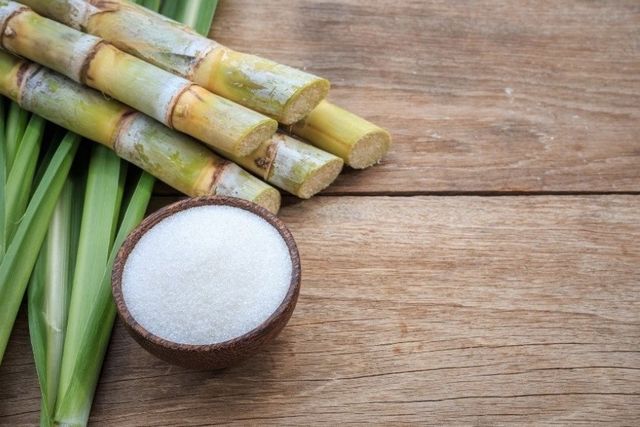Beet Sugar vs Cane: What’s the Difference in Production and Refining?
Beet Sugar vs Cane: What’s the Difference in Production and Refining?
Blog Article
The Terrific Dispute: Beetroot Sugar Vs Cane and Their Influence On Health And Wellness
The continuous debate bordering beetroot sugar and walking stick sugar raises vital concerns regarding their corresponding health influences and wider ramifications for customer options. While both sugar share a comparable chemical composition, their beginnings and processing approaches may influence not just nutrition however also environmental sustainability. As health-conscious individuals consider the benefits of each alternative, the ramifications of chemical direct exposure and agricultural methods enter into focus. This conversation welcomes us to take into consideration not just the sweetness we pick, but the significant effects of those options on our health and the world. What might this indicate for future intake patterns?
Review of Sugar Sources
Sugar, an extensively consumed sweetener, mostly stems from two main sources: sugar beets and sugar walking cane. Sugar walking stick flourishes in exotic and subtropical climates, with major producers consisting of Brazil, India, and China.
Conversely, sugar beets are mostly expanded in warm regions, with considerable manufacturing in countries such as the USA, France, and Germany. The beetroots are gathered from the ground, sliced, and based on a process that transforms the removed juice right into granulated sugar. While both sugar resources ultimately generate sucrose, their agricultural practices, refining approaches, and geographic distributions differ considerably.
These differences can influence not just the environmental impact of sugar manufacturing yet additionally the economic aspects of sugar prices and trade. Comprehending the origins of these sugar is critical for policymakers and consumers alike, as it lays the foundation for notified discussions regarding their health ramifications and sustainability.
Nutritional Comparison
When examining the nutritional profiles of beetroot sugar and cane sugar, both resources share a similar structure as they primarily are composed of sucrose. Sucrose is a disaccharide, composed of sugar and fructose, and is accountable for the sweet taste related to both sugars. The refining procedures for both beetroot and cane sugar yield items that are predominantly pure sucrose, with minimal traces of vitamins, minerals, or other nutrients.
In terms of calorie content, both beet and walking cane sugars provide about 4 calories per gram. Neither kind of sugar uses significant dietary advantages beyond energy arrangement, as they lack important vitamins or minerals. Nonetheless, the visibility of micronutrient, such as potassium, magnesium, and calcium, can differ somewhat in between the 2, primarily due to the agricultural techniques and soil conditions in which they are grown.
Furthermore, the glycemic index worths of beet sugar and cane sugar are comparable, indicating similar effects on blood sugar levels. In general, from a nutritional viewpoint, beetroot and walking stick sugars are functionally equal, contributing mainly to calorie intake without providing substantial health and wellness advantages over each other.
Health Implications
The wellness ramifications of consuming beet sugar and cane sugar warrant careful consideration, specifically given the climbing frequency of sugar-related health and wellness problems. Both sorts of sugar contribute similar calorie values and can result in increased risks of weight problems, type 2 diabetes, and cardiovascular conditions when eaten in excess. The body metabolizes both sugars into sugar, which can trigger spikes in blood glucose levels, resulting in insulin resistance over time.
While there is recurring dispute relating to the glycemic index of these sugars, researches suggest that both can negatively influence metabolic health and wellness if consumed in huge amounts. beet sugar vs cane. Furthermore, the possible existence of pollutants in beetroot sugar, such as pesticides from conventional farming techniques, increases further wellness issues. Conversely, walking cane sugar, especially when minimally refined, may supply a somewhat more favorable account as a result of its natural state
In addition, the intake of included sugars, despite the source, is connected to unfavorable health outcomes, including dental concerns and fatty liver disease. Therefore, moderation is important, and people should be conscious of their complete sugar intake from all resources, ultimately focusing on entire foods over added sugars for ideal health and wellness outcomes.
Ecological Influence
Comprehending the health implications of beet and cane sugar additionally results in an exam of their environmental effect, which can significantly affect farming sustainability and eco-friendly balance. Both sugar resources have unique ecological footprints, shaped by their growing methods and geographical demands.

On the other hand, beet sugar is usually expanded in pleasant environments and commonly involves diverse crop rotations. This method can improve dirt health and wellness and lower dependence on chemical inputs. Intensive beetroot farming can also lead to nutrient depletion and insect pressures if not managed sustainably.
Both sugar kinds existing challenges and possibilities for ecological stewardship. Advertising lasting agricultural practices and liable sourcing can mitigate their impacts, ensuring that sugar manufacturing straightens with eco-friendly conservation and long-term food safety and security.
Consumer Preferences
Amid expanding understanding of wellness and environmental concerns, customer preferences for sugar types are increasingly influenced by understandings of health and wellness benefits, sustainability, and moral sourcing. Beetroot sugar and walking stick sugar each present special attributes that interest different customer demographics.
Health-conscious customers typically scrutinize the dietary accounts of these sugars, seeking choices perceived as much less processed or even more natural. Cane sugar, usually considered as the conventional sugar, is in some cases favored for its regarded purity and simpleness. On the other hand, beet sugar, which is frequently originated from genetically customized plants, faces skepticism amongst those worried concerning GMOs.
Sustainability is another substantial element affecting consumer options. As understanding of farming practices grows, several consumers select items that straighten with environmentally pleasant farming approaches. Cane sugar manufacturing, especially when sourced investigate this site from sustainable farms, can interest eco-conscious buyers.
Honest sourcing plays an essential role as well, with customers this page increasingly favoring items that sustain fair labor methods. Accreditations such as Fair Trade can improve the good looks of cane sugar out there. Inevitably, customer preferences are formed by an intricate interaction of health and wellness, ecological, and ethical factors to consider, driving need for both beet and cane sugars in varied markets.
Conclusion
To conclude, the discussion between beet sugar and cane sugar encompasses different factors, including nutritional profiles, health implications, and environmental repercussions. beet sugar vs cane. While both sugars largely are composed of sucrose and show comparable calorie web content, worries pertaining to chemical usage in beetroot sugar and the eco-friendly effect of walking stick sugar monoculture warrant mindful consideration. As consumers progressively prioritize sustainability and health, informed choices relating to sugar usage end up being vital in promoting overall well-being and ecological stewardship

Report this page